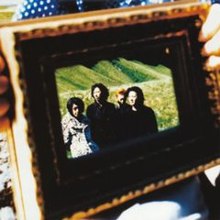J-pop, natively also known simply as pops, is a musical genre that entered the musical mainstream of Japan in the 1990s. Modern J-pop has its roots in traditional Japanese music, but significantly in 1960s pop and rock music, such as The Beatles and The Beach Boys, which led to Japanese rock bands such as Happy End fusing rock with Japanese music in the early 1970s. J-pop was further defined by new wave and crossover fusion acts of the late 1970s such as Yellow Magic Orchestra and Southern All Stars, then Eurobeat in the early 1990s, namely Namie Amuro.

GLAY is a Japanese rock band, formed in Hakodate in 1988. Glay primarily composes songs in the rock and pop genres, but they have also arranged songs using elements from a wide variety of genres, including progressive rock, punk, electronic, R&B, folk, gospel, reggae, and ska. Originally a visual kei band, the group slowly shifted to less dramatic attire through the years. As of 2008, Glay had sold an estimated 51 million records; 28 million singles and 23 million albums, making them one of the top ten best-selling artists of all time in Japan.
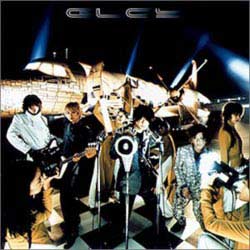
One Love is the seventh released album from the Japanese rock band Glay. This album is the first one to have song compositions from each member.

Drive: Glay Complete Best is the second "greatest hits" album by Japanese pop/rock band Glay. It is composed by some of Glay's most popular singles and album tracks from their debut in 1994 to 2000. The two discs each contain hits from albums Speed Pop to Heavy Gauge as well as various singles. The album peaked at #1 at Oricon charts and sold 2,637,420 according to the charts. The album was certified "Double Million" by the Recording Industry Association of Japan (RIAJ).

Heavy Gauge is the 6th album by Japanese rock band Glay. This is the first album which Glay dabbles in the genres of progressive rock and gospel, using progressive chords on songs like the self-titled track, and using gospel choirs in songs such as "Will Be King" and "Happiness". This album also marks a milestone in Glay's career with their hit song "Winter, Again". The song won Single of the Year (1999) at the Japan Record Award. Many songs from the album were used in the Meiji Seika Kaisha advertising campaigns for their "Horn" and "Flan" product food lines. The album reached #1 on Oricon charts and sold about 2,370,000. The album was certified "Double Million" by the Recording Industry Association of Japan (RIAJ).

Unity Roots and Family, Away is the eighth released album from the Japanese rock band Glay. It reached #1 on Oricon charts and sold about 436,180 copies. In this album Glay takes a new turn and dabbles in genres such as gospel, R&B and blues. The band's leader, Takuro, wanted an album made for the people closest to him, which resulted in "UR&FA".

Pure Soul is the fifth released album from the Japanese rock band Glay. The album was a slight departure from the rock and power ballad sound the band sported with their previous albums. Pure Soul brought forth a faster alt-rock sound. The album contains such hits as "Yuuwaku", "Soul Love", the concert classic "I'm in Love", and the title track "Pure Soul". The album peaked at #1 on Oricon charts and sold about 2,430,000. It was certified "Triple million" by the Recording Industry Association of Japan (RIAJ).
The discography of Japanese pop rock band Glay consists of sixteen studio albums, forty-two unique singles, twenty-seven video albums, and sixty-four songs associated with various promotions.
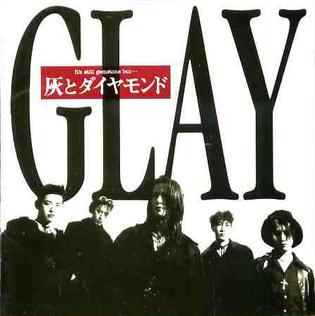
Hai to Diamond is the debut album by Japanese rock band Glay. It was released on May 25, 1994 on the independent label Extasy Records and peaked at #26 on the Oricon chart, with more than 100,000 copies sold.

Speed Pop is the second album by Japanese rock band Glay. It is the band's major label debut album, was released on March 3, 1995 and peaked at #8 at Oricon charts, with 320,150 copies sold.
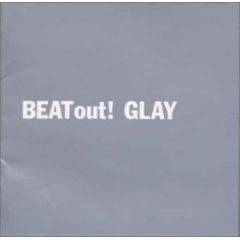
Beat Out! is the third album by Japanese rock/pop band Glay. It was released on July 2, 1996, and peaked at #1 at Oricon charts, with 821,890 copies sold. It was named one of the top albums from 1989–1998 in a 2004 issue of the music magazine Band Yarouze.

The Frustrated is the ninth album by Japanese rock band Glay. It was released on March 24, 2004, and peaked at #2 at Oricon charts, with 241,485 copies sold. It was certified Platinum by the Recording Industry Association of Japan (RIAJ).

Review is the first greatest hits album from the Japanese rock band, Glay. It was released on October 10, 1997, and this album contains Glay's most popular singles and tracks from their 1994 album Hai to Diamond to their fourth album Beloved. The album sold over 2,003,000 copies in the first week of the release, debuting at the number-one position on the Japanese Oricon weekly charts. It remained for five consecutive weeks at the top of Oricon charts. It became the third best-selling album in Japanese history, with more than 4,870,000 copies sold. It was certified Five Million by the Recording Industry Association of Japan (RIAJ).

Ballad Best Singles: White Road is the fourth released greatest hits album from the Japanese rock band, Glay. The album peaked at #1 at Oricon charts, with 411,521 sales. It was certified Double Platinum (500,000) by the Recording Industry Association of Japan (RIAJ).

Dancemania Speed is a sub-series of Toshiba EMI's Dancemania compilation series. This series features faster, further remixed versions of recordings from previously released Dancemania albums or faster remixed covers of various famous songs. Unlike the main series mostly consisting of Eurodance, this series largely consists of hardcore techno crews from the UK, the home of happy hardcore, and some Eurobeat Italians who are very much experienced in high BPM dance music.
The Great Vacation Vol.2: Super Best of Glay is a compilation album by Japanese band Glay, released on October 21, 2009. It reached #1 at Billboard Japan Top Albums chart and #1 on Oricon charts, selling sold 187,732 copies. It was certified gold for shipment of over 100,000 copies.
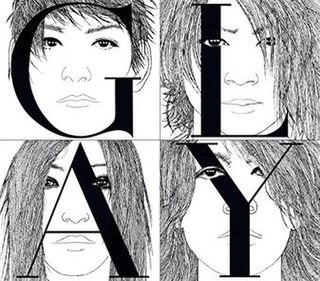
Music Life is the thirteenth studio album by Japanese pop rock band Glay, released on November 5, 2014. It reached #2 at the Oricon weekly charts, #5 at their monthly chart for November, and #58 at their 2014 Year-End Chart, besides reaching #4 at the Billboard Japan Top Albums chart.
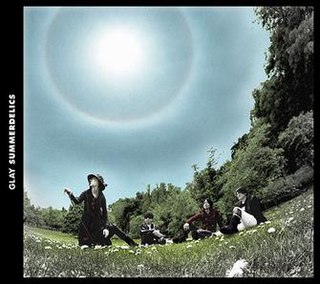
Summerdelics is the fourteenth studio album by Japanese pop rock band Glay, released on July 12, 2017. It was released in three versions: the regular edition with the album, a special edition with the album and two live DVDs, and another special edition with the album, four live albums and three blue rays.
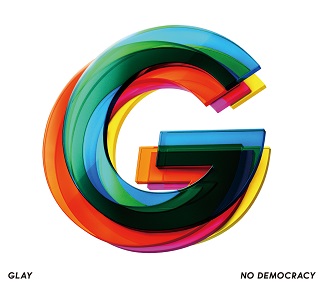
No Democracy is the fifteenth studio album by Japanese pop rock band Glay, released on 2 October 2019.

Universe: The History is the second studio album and debut Japanese album release by South Korean boy group Pentagon. The album was released on September 23, 2020, containing Japanese songs from their debut mini album Gorilla and debut singles "Cosmo" and "Happiness / Sha La La". Member Jinho participated in the activities before enlisted for his mandatory military service on May 11, 2020.
